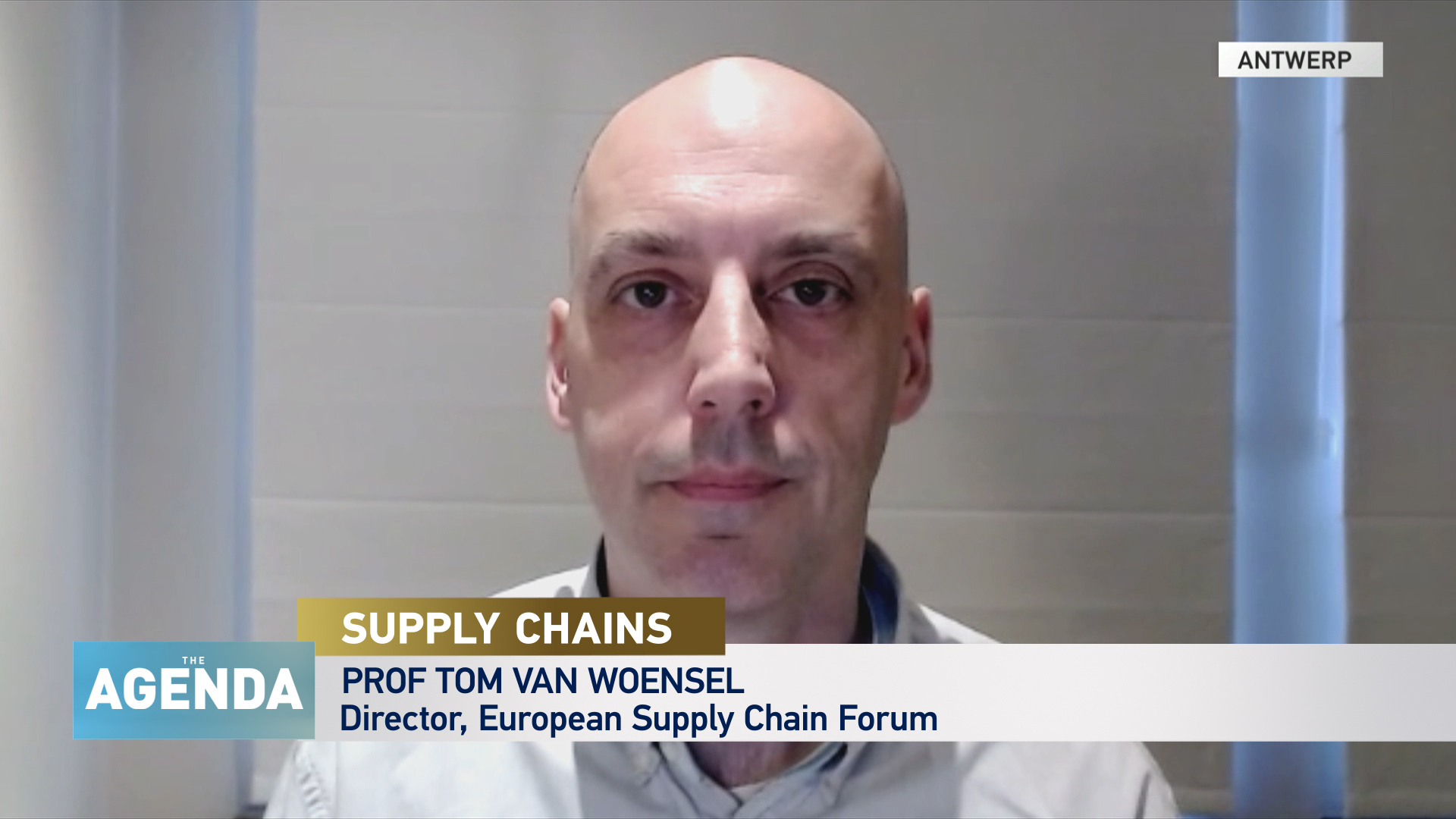06:02

WHAT'S THE ISSUE?
The global supply chain has been strained by the pandemic and other trade-related issues, so how can it be made more resilient for the future?
The European Supply Chain Forum is the leading collaboration platform designed to help solve supply chain challenges using technology, innovative thinking and what it calls out-of-the-box solutions. Its director is Tom Van Woensel, a professor of Freight Transport and Logistics at Eindhoven University of Technology.
Here, Van Woensel joins The Agenda's Stephen Cole to explain the impossible task of planning for the "unknown unknowns" and why it's not always feasible for a company to build supply chains from scratch that can sufficiently cope with unlikely, but severe, natural disasters:
"If you talk about a situation like a pandemic or Brexit or any old or natural disasters, this is what we call unknown unknowns. We don't know what the severity will be or the magnitude. We also don't know when they will be happening [or] how they will be happening. And the key question is how can you build a supply chain that is sufficiently coping with these kinds of situations? That's not easy."

MEET THE EXPERT:
Tom Van Woensel is director of The European Supply Chain Forum (ESCF).
He's also a professor of Logistics at Eindhoven Technical University.
In addition, Van Woensel is academic director of the Global Supply Chain Program at Antwerp Business School.


ALSO ON THE AGENDA
- Mickey Howard, professor in sustainable supply chain management at Exeter University, explains the fragility of our supply chain systems and why limited supplies of lithium could prove to be the next big conundrum for consumers.
- Qu Qiang, assistant director of the International Monetary Institute at Renmin University of China, tells Stephen Cole China wants to share its capacity and production power with other countries to make the overall global shipping process easier and cheaper for all.
- Tom Bradshaw, vice-president of the UK's National Farmers' Union, joins Cole to explain why the ongoing issues should act as a wake-up call for the world to reconsider globalization and start sourcing food and products locally instead.

